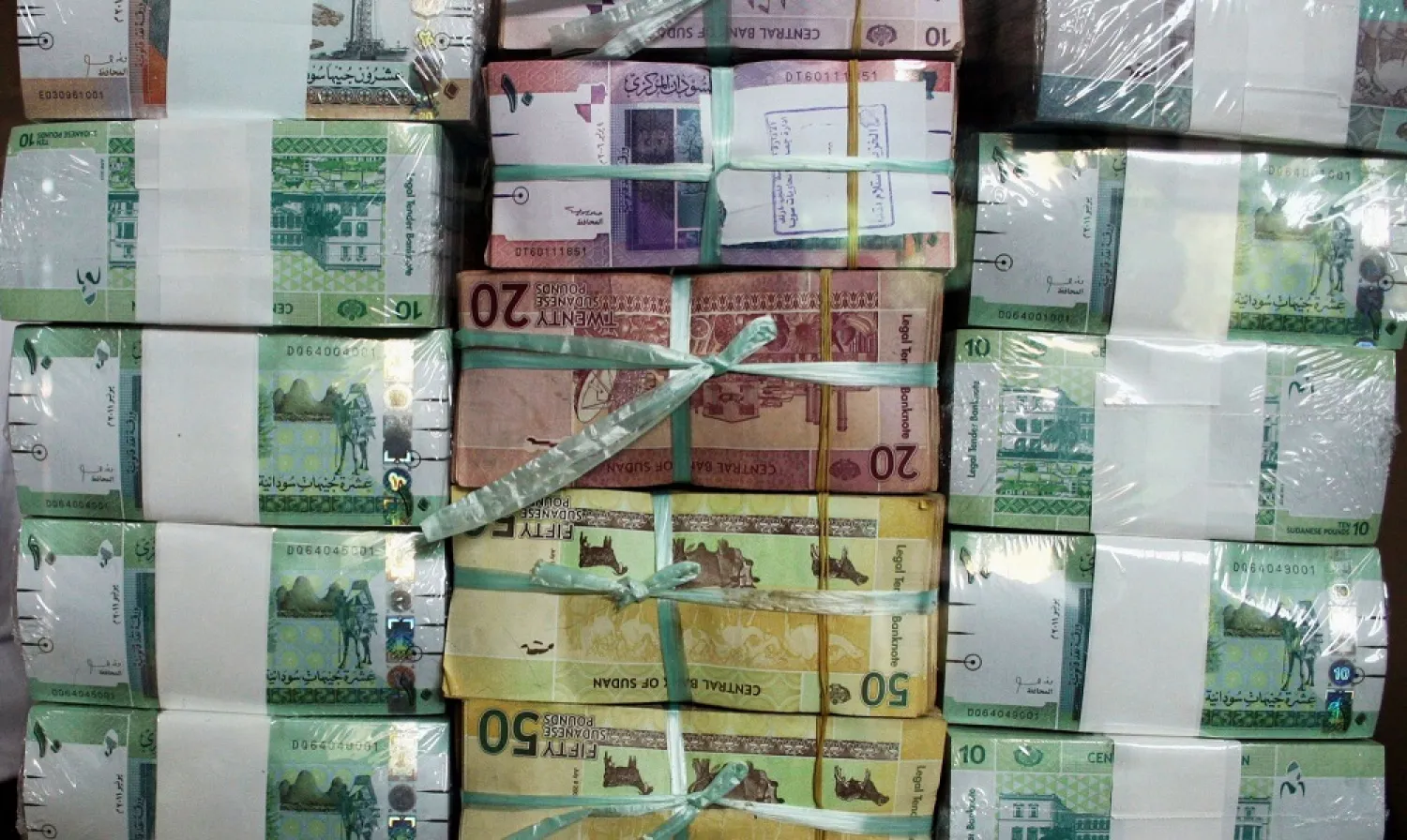Sudan’s devaluation of its currency last month, a long-awaited step in tackling the country’s chronic economic crisis, initially caused confusion among banks, traders and clients.
Yet less than two weeks after Sudan slashed the value of its pound and put a managed float in place, its banks are gradually taking over currency trades, opening the way for billions of dollars in debt relief and the unlocking of new finance.
The Sudanese government is already getting some help from donor funds previously blocked by sanctions and the delay in exchange rate reform.
The central bank weakened the official exchange rate to 375 Sudanese pounds, close to the black market rate, from the previous 55 pounds on Feb. 21. Sudanese authorities have since moved cautiously as they encourage citizens to use banks, while trying to cut off supplies of dollars to the black market.
Channeling transactions through banks will eventually help build up a foreign exchange cushion to finance imports to Sudan, which has been in a state of political transition following the April 2019 overthrow of former president Omar al-Bashir.
Soon after the central bank’s move, customers began returning to exchange houses and commercial banks to buy Sudanese pounds, after years of resorting to the black market.
In the first week, banks bought $25.4 million in foreign currency and sold $20.4 million, central bank governor Mohamed al-Fatih Zainelabidine told state TV on Saturday.
“We have started selling our dollars to the bank because the price is realistic and reasonable, and this way we also support our country’s economy,” said 53-year-old Ali Khaled, an employee at a foreign company waiting to sell dollars at a small bank branch in central Khartoum this week.
Customers can only buy foreign currency for central bank approved purposes such as travel, education, medical treatment or the import of goods, and only with supporting documents.
Under the rules laid out by the central bank, travelers can buy a maximum of $1,000 every six months, and banks must sell any leftover foreign exchange to it each day.
Black market traders report a big decline in activity and the rate has stayed close to the official one. A dollar went for 375 pounds on the black market on Tuesday, against the day’s official rate of 378.
The devaluation could also test Sudan’s banks, some of which have significant foreign currency debts, as only 18 out of 37 passed a recent stress test, a local banker said.
“If there is a shortage of foreign currency for imports we will be back in business,” one trader on the black market said.
Both the government and major importers are expected to stop dipping into the black market to secure strategic commodities.
“The government was one of the biggest buyers in the black market. Now the government has stopped,” said Amin Shibeika, general manager at a Khartoum bank.
And authorities say they are taking steps to ensure dollars are available for imports of scarce commodities and medicines, to limit pressure on the Sudanese currency.
‘Positive effect’
Sudan has also introduced measures aimed at attracting remittances, which the United Nations estimated at $2.9 billion in 2018, and investment from Sudanese living abroad.
Meanwhile, the central bank will also begin a system of foreign currency auctions with local banks to help boost their supply of dollars, Zainelabidine said.
The International Monetary Fund’s most recent estimate put Sudan’s reserves at $234 million, or 0.4 months of imports and the country is heavily reliant on donors for funds.
About half of an initial $400 million in donor funding for the rollout of a project to provide $5 cash welfare payments to much of the population has been deposited with Sudan’s ministry of finance, according to officials.
“That will be helpful in that its hard currency dollars that will be used to buy Sudanese pounds, and that will have a positive effect,” Brian Shukan, the United States’ Charge d’Affaires in Sudan, told Reuters.
Diplomats expect a donor and investment conference scheduled for May in Paris to be followed within two months by a meeting of Paris Club and other creditors to start clearing around 65% of Sudan’s estimated $58 billion debt over three years.
That would allow Sudan to borrow for larger projects such as infrastructure, they said.
And a bridge loan pledged by the US would clear $1.055 billion in arrears to the World Bank and unlock access to up to $2 billion in new World Bank funds over two years, Shukan added.









